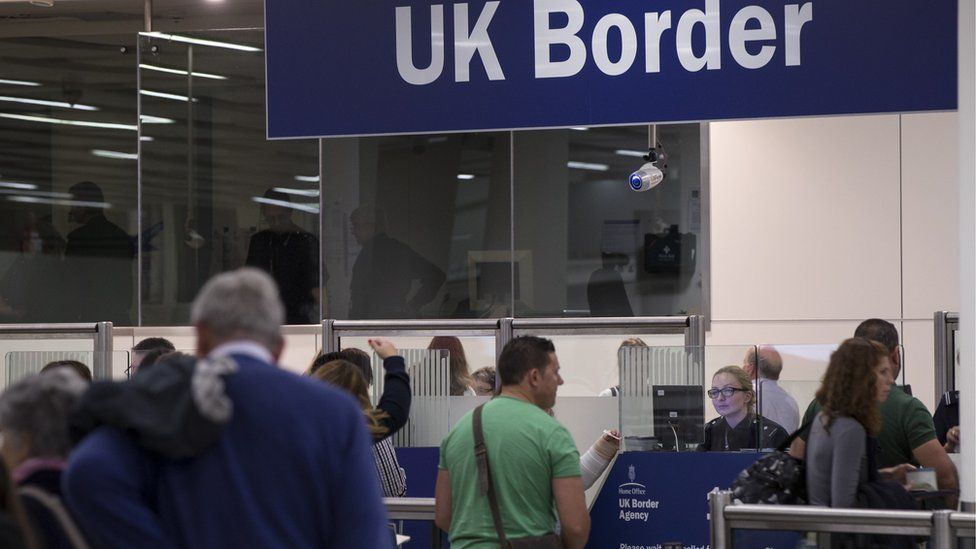UK to scrap passenger landing cards
- Published

All landing cards for international passengers arriving in the UK will be scrapped from Monday.
Landing cards are currently filled in by passengers arriving by air or sea from outside the European Economic Area.
Border Force director general Paul Lincoln, in a letter to staff, said it would "help meet the challenge of growing passenger numbers".
But unions warned it risked weakening immigration controls.
Around 16 million landing cards are issued every year and they are used to record what is said to border staff on arrival, as well as the reasons for travel and conditions of entry.
The Home Office had agreed to scrap them for seven countries, including the US and Australia, from June, but has now decided to go further.
'Only record'
A document from officials to Border Force staff, seen by the BBC, says much of the data collected by paper landing cards will soon be available digitally.
It adds that the withdrawal of the cards will enable staff to "focus more on your interaction with passengers".
But Immigration Service Union general secretary, Lucy Moreton, accused the Home Office of "ignoring" warnings from experienced staff as to the longer-term impact of getting rid of landing cards.
She said that the union had been assured that scrapping them would not happen until new technology was in place to record international arrivals.
"Although in most cases landing cards are retained for purely statistical reasons they do contain the only record of what was said to an officer on arrival," she said.
In his letter, Mr Lincoln said he recognised concerns about the scheme.
But he added: "These changes will enable frontline officers to focus their skills and time on border security issues and on cohorts who present the greatest risk of immigration abuse."
The decision to scrap landing cards comes after the government announced it was extending the use of e-gates at UK borders to citizens of the US, Australia, New Zealand, Canada, Japan, Singapore and South Korea.
Currently the gates, which scan e-passports, are reserved for European Economic Area citizens.
- Published19 April 2018
- Published13 March 2019